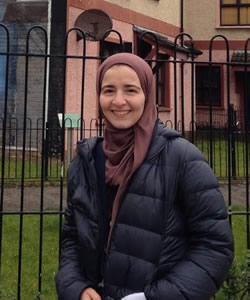In the beginning of January, a few days after my arrival in London, the Charlie Hebdo attacks took place. Knowing that I am on a study-abroad program in London, an American friend texted me to tell me to take care and stay alert as the Paris attacks might instigate a wave of violence across the Western world against people who appear to be Muslim.
At the end of the month, France released a nine-point list of things to look out for in a potential jihadi. The list included behavioural changes such as “quits going to the cinema” or “stops all sport” as signs of potential “radicalization.” The ordinariness of these activities made the list a center of mockery on social media.
As reassuring as it is to have a non-Muslim friend who understands the hardships many Muslims face, and to know that many “ordinary” people perceive right-wing tendencies of governments as laughable, I have yet to tread the streets of London without feeling self-conscious as a Muslim. As sensationalized news about subjects like “Jihadi John,” “Jihadi brides,” and ISIS occupy the front pages of tabloids and newspapers every now and then, I cringe to think of how the average Londoner, receiving her daily news from poorly written articles in the Evening Standard or the Sun, sees Muslims and Islam. I am also saddened that the word jihad, with all its multifaceted meanings, is reduced in British mass media to signify ruthless killings done in the name of God, and that little effort is made to deconstruct this problematic understanding.
As a veiled Muslim woman, my experience in the public sphere differs from Muslim men and non-hijabi Muslim women. While both can almost always keep their religious affiliation secret by donning “religiously neutral” clothes, my headscarf always gives me away and determines—both positively and negatively—the way people see me. Many would regard me and my actions as representative of my religion. Many would be prepared to make inaccurate assumptions about my cultural background through my hijab. For example, while discussing the lives of Muslim women with a scholar in London, I was a little disappointed to see the awe on her face when she discovered that I willfully chose—and was not forced—to wear the hijab. Her reaction reveals an underlying presumption that, by default, veiled Muslim women lack agency and are doomed to a life of coercion.
Yet, being Muslim in London is an experience that is far from series of systematic disappointments periodically that made me, as a Muslim, feel at home in London and more connected to the transnational ummah (Arabic word usually used to denote the community of Muslims). These moments gave me glimpses of what I could characterize as acts of the perfection of faith (iman), a state of being and behavior that is, in Islamic thought, superior to Islam, defined as a believer’s mere proclamation of the oneness of God.
I found iman in the actions of Muslim passers-by who voluntarily offered me instructions on how to get to places when they saw me gazing back and forth from street signs to the screen of my mobile phone. It would have been almost impossible to know their faith if it was not for their showering me with “Islamic” utterances like as-salamu ‘alaykum (peace be upon you) as a greeting, ukhti (my sister) as conversation fillers, and ma sha’ Allah (God has willed it) as a way of expressing joy at learning that I am studying politics at University College London (UCL).
I found iman in a note placed (by UCL’s Islamic Society, as far as I recall) at the door of the prayer room announcing that they were giving away prayer rugs, which were placed just below the note. Clueless as to where else I would find one in London, I, of course, grabbed one.
I also found iman within the confines of UCL’s prayer room, which was always bustling with Muslims and where, upon my entrance, a particular Shi'a girl (discernable from the way she prays) would always greet me with a cheerful smile. For me as a Sunni, this was both heart-warming and thought-provoking. Not only does it symbolize solidarity among Muslims, but it also powerfully suggests that the carnage taking place in Iraq and Syria amongst some members of our religious sects is not a natural corollary to differences in religious beliefs, but a consequence of an unfair distribution of money and power.

